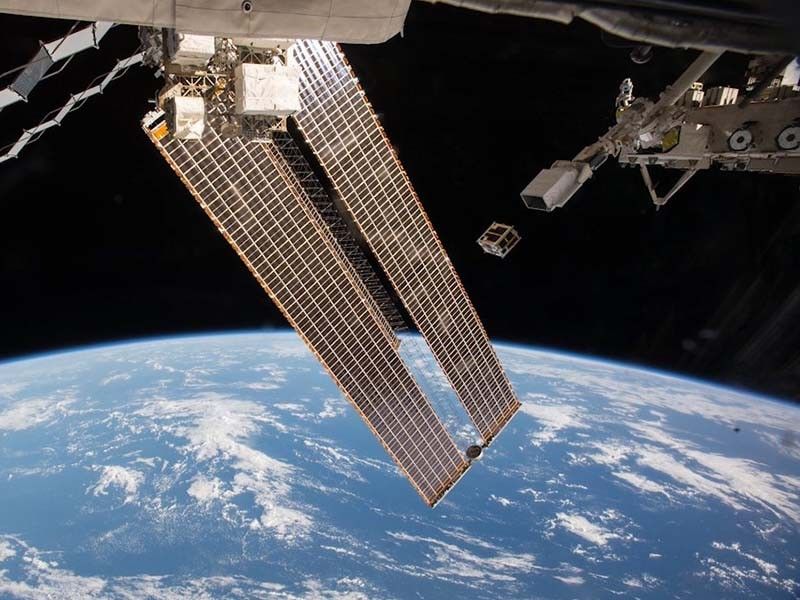Space cooperation as vast space itself

In 1975, one of the most significant milestones in space cooperation happened when a joint international space mission by the United States and the Soviet Union named the Apollo-Soyuz was successfully carried out. This event 49 years ago apparently started space cooperation among countries, symbolically thawing Cold War tensions in the world’s newest frontier at the time.
Today, cooperation in countless different areas whether domestic or across countries has become a household concept, especially in areas that concern our lands and seas. However, the topic of space cooperation continues to be foreign to most, especially to many who do not recognize the efficiency and effectiveness of using space science and technology applications (SSTA).
In giving popular yet unassuming examples of the wider uses of space-based technologies, one can look at weather forecasting and monitoring as a strong illustration of their usefulness. This is most especially important to the Philippines given that our nation is prone to drastic weather patterns like typhoons and storms.
Space-based technologies have the potential to provide critical information for disaster risk management. Another common use by most would be connectivity in both navigation and connectivity to the rest of the world by television and radio. People's lives have undoubtedly been made easier through the use of global positioning satellites (GPS), and our worlds have broadened, thanks to shows on television and radio access.
Agriculture and the environment have also greatly benefited from space infrastructure. Crop health and soil moisture can be monitored more efficiently, while sensors within orbiting satellites in space can monitor significant changes in sea levels, deforestation, and even levels of pollution especially in urban areas. If used properly, the information gathered from the usage of spaceborne instruments becomes vital to conservation and environmental management efforts.
Security is also a key benefit arising out of SSTA. Maritime domain awareness transcends discussions of being able to monitor Chinese Coast Guard and Chinese fishing vessels in the West Philippine Sea.
One benefit under the maritime domain is the ability to monitor vessel movements, maritime traffic, port conditions, and more. People are able to claim and assert our rights in the West Philippine Sea thanks to advancements in the spaceborne monitoring of our seas.
All the sectors mentioned above point to areas that we at the Institute track as part of the Stratbase Institute’s 7 geopolitical risks and opportunities. At the heart of it, risks and opportunities of the greater Filipino public are duly addressed and taken care of, thanks to the new technology that has risen.
People now enjoy these benefits due to other countries who have invested their technologies in the Philippines, and who continue to do so through cooperative agreements, or private sector initiatives.
In going back to the example above, no one in 1975 would have guessed the extent and breadth of spaceborne technologies and their ability to impact society at large through the benefits they provide.
Today, through the private sector, the public is seeing a rise in initiatives for cooperation. For instance, private-sector entities continue to collaborate with international partners, including governments, space agencies, and commercial organizations, to pursue common goals and address global challenges such as climate change.
People see more advocacies pushing for more regulation around space, or space policy. Seeing that space is a global commons and that its resources can either be exploited by a malevolent actor or shared by everyone, discussions around space that is open for all to use are becoming more and more of a reality.
Space debris is becoming an increasingly concerning problem, and through the United Nations Committee on the Peaceful Uses of Outer Space (COPUOS), there have been efforts to develop guidelines and agreements to promote responsible space activities and mitigate space debris. This is an effort that is truly made possible by countries working together to manage this problem.
Here in the Philippines, while discussions on space are relatively new, there is no doubt that there will be a drastic rise in space-related interest, information, and consequently, the birth of an industry.
There is a slow but steady interest in wider space-related applications, proof of which can be found through the birth of the Philippine Space Agency in 2019. The question is on how we shape this, government direction, and goals that will ultimately benefit the public at large.
This is why conversations on space need to happen. The beginning of these conversations here in the Philippines lies in a conference that will be held on March 19, 2024 entitled “Navigating the Frontiers of Global Space Collaboration and Promoting Space Science and Technology Applications Across Industries.”
This conference will be hosted by the Stratbase Institute in partnership with the Canadian Embassy in the Philippines, in collaboration with the Philippine Space Agency.
The conversations will tackle topics such as how to fully maximize the potential of SSTA and gear to respond to challenges brought on by climate change, natural disasters, marine biodiversity loss, and maritime security threats among others, cooperation among states as a necessity considering its implications, as space cooperation holds significant implications for the stability in the region, and more.
As people move towards a new age in a new and exciting area such as space, let us bring with us the excitement of cooperation and coming together to work on common pressing issues. One beautiful way of keeping this in mind is to remember lessons of working together from 1975, and to take to heart that the possibilities for development are as vast and endless as space itself.
Shanice-Espiritu Amador is the deputy executive director for research of the think tank Stratbase ADR Institute.
- Latest





























